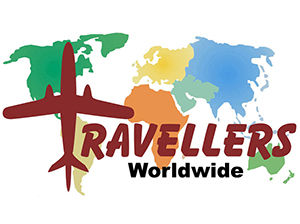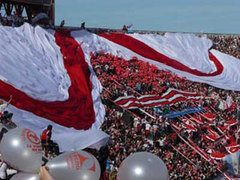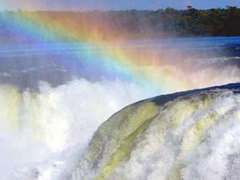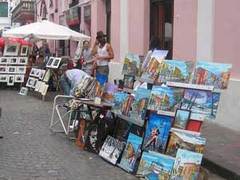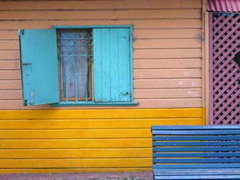The romance of Argentina takes one's breath away. Argentina is geared up to thrill - from nights tangoing in the chic quarter of Buenos Aires to gaucho riding in the grasslands of the Pampas. Dynamic and bustling, a city which never sleeps, Buenos Aires is one of the most exciting cities in Latin America. Tango was born here, restaurants serve all manner of world cuisines, bars play the latest music, cafés spill on to the streets and nightclubs allow dancing throughout the night. A cosmopolitan and elegant capital with a surprisingly European feel, Buenos Aires is reminiscent of Paris with its tree-lined avenues and wonderful plazas which have a beguiling, faded elegance.
STUDYING PHOTOGRAPHY IN BUENOS AIRES:
We run photography courses in Buenos Aires with a well known and experienced private teacher who has studied extensively in New York and Argentina, and has been teaching photography for many years. All courses are for a period of 4 weeks with flexible start dates. It is possible to combine a photography course with any other project (care, teaching, Spanish, tango, salsa).
Some lessons will take place on location throughout Buenos Aires (in museums, at private exhibitions etc) offering an invaluable chance to discover this incredible city whilst learning to take better photos. You'll also be given assignments and will need to investigate the city by yourself to photograph landscapes, characters or objects according to the guidelines given. Your teacher is fluent in English as well as Spanish, so lessons can be held in whichever language you would prefer.
BEGINNER LEVEL:
This course aims to teach the principal technical aspects of photography and at the same time to introduce the narrative concept of a group of images. The objective is to show photography mainly as a tool of expressing yourself, allowing the photographer to conceive and tell stories through images. The student will be encouraged to experiment, investigate and follow his/her instinct in order to create his/her own images and identify the relationship between images and concepts. In regards to the technique, the objective is to learn about and dominate the student’s own camera (analogical or digital), understanding its virtues and defects to obtain the wanted results.
The course covers the basic operation of the reflex or compact cameras (35 mm) and includes: • Diaphragm. Field depth. Distinguished focuses. Shutter speed (movement registers. Frozen image) • Light measure, exposition. Diaphragm-Speed relation • Lenses. Different uses and applications. Field depth. Lighting. • Different kind of films, sensitivity. Grain-sensitivity relation Theory lessons are orientated to analyze and edit the work done in the atelier. An exhibit of international and local artists’ work is shown to provide a practical background for the teaching and a historical revision of photography. Students are free to work in any camera format (reflex or compact; analogical or digital) they prefer.
ADVANCED LEVEL:
Developing a personal vision as a photographer is both challenging and rewarding. By reviewing other photographers work, completing class assignments, and participating in critiques, the student will be encouraged to expand his/her understanding of photography. Discussions and critiques will focus on finding the best means for communicating a set of ideas photographically developing his/her powers of observation and photographic techniques. The contact sheet or small print will form a structure for seeing by mapping the evolution of perception through the course. Although the primary concern will be thematic and aesthetic, the course will cover technical weaknesses such as film choice, exposure, flash versus available light, camera placement, camera/subject motion, use of space, frame edges, selective focus, etc. Slide shows and/or book reviews will provide an overview of the history of photography as well as references for further exploration.
NOTES:
- Students are free to work in any camera format
- Discussions will also focus on editing, sequencing, and presentation.
- You need to see your photographs not as a collection of many pictures, but as a body of work.
- Prerequisite: Principles of Black-and-White and Colour Photography, or portfolio review (15 pictures on a CD) If you want to pack in a lot of learning instead of having a relaxed placement, you can combine your photography course with another placement such as Spanish or teaching. Your schedule for the courses given above will allow time for studying and also time for sightseeing and absorbing the experience of being in the Argentina culture.
ACCOMMODATION:
Depending on your preferences you can either stay in a modern hostel, in the young and trendy neighbourhood of Palermo, with other volunteers or, if you would prefer a more cultural experience, you can be placed with a host family, and become fluent in Spanish in no time!
HOSTEL: Your hostel is situated in the trendy Palermo Viejo (old Palermo). Close to the heart of the city, Palermo is the young people’s capital of Buenos Aires and is full of restaurants, bars, and unique boutique shops. Even though on each block you can find the latest fashions and nightlife hotspots, the neighbourhood is traditional with wide streets, tree lined and cobbled and old colonial style houses. There is also a huge park, similar to Central Park in New York, just on your doorstep. The hostel is relatively small, cosy and relaxed with a fantastic atmosphere and very friendly owners. The hostel has recently been renovated in a modern style with new decor and furniture. The rooms are very spacious with high ceilings. Big enough to be sociable and fun, yet small enough to feel at home - the hostel receives a great deal of positive volunteer feedback.
HOST FAMILY: If you would prefer a more cultural experience, we can arrange for you to stay with a local Argentinean Family. Host family accommodation gives you the opportunity to become more integrated with the local community and is ideal if you want to practise your Spanish (Basic/intermediate Spanish is required to stay with a Host Family). You will be provided with a comfortable and clean private room and will have use of the kitchen. You will be provided breakfast and for dinner (optional), you will usually share a typical Argentinean meal with your family. If you stay in a host family you will be provided with the contact details of other volunteers living in Buenos Aires at the same time as you so that you won't miss out on any socialising!
WHAT TO DO NEXT:
Talk to us - We're there to help you. If you’d like more information about this or any of our projects, please email or call us! If you’d like to apply for this project, please go to our website and complete the application form. As soon as we receive it, we’ll liaise with you and then start making your travel adventure happen. It’s as easy as that.

